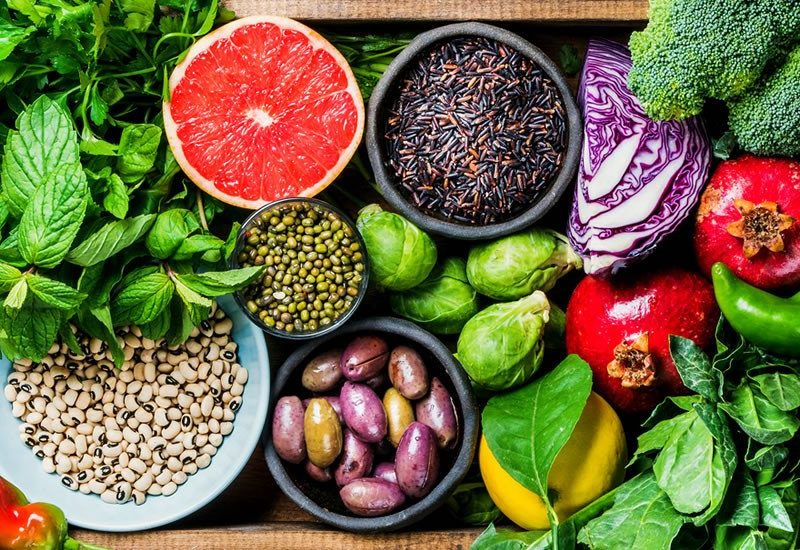Many doctors and researchers believe that inflammation is the root cause of many chronic illnesses. Inflammation has been linked to diseases such as; allergies, cardiovascular disease, cancer, digestive disorders, depression, autoimmune disorders, arthritis, acne and more.
Acute inflammation is the part of the body’s natural healing process. It is normal and needed. That isn’t the inflammation that we are talking about here. C-reactive protein is a blood test that is the benchmark for acute, as well as chronic inflammation.
When the body deems something as a threat or foreign, an inflammatory response will follow.
There are a lot of lifestyle modifications that can be done to reduce inflammation. Some of them include; getting ample sleep, stress management, proper hydration and getting regular exercise. Also, avoiding environmental toxins can be a huge help. Eating the right foods and avoiding the wrong foods can go a long way to reduce inflammation.
The Food Swap Out List
1. Get Rid of Dairy from Cows
Dairy products from cows can potentially spike insulin levels and cause hormonal imbalances. Many people are also allergic to dairy. In addition, dairy products are potentially linked to digestive disturbances, hives and eczema.
Cow’s milk contains a inflammatory protein called casein. This protein is different in the dairy products from sheep and goats. Those proteins are not linked to inflammation the way cow dairy products are.
Before you jump on the soy and almond milk bandwagon, realize that soy contains phytoestrogens that can mimic human estrogen. Most soy is also GMO. Even almond milk may contain a lot of sugar and fillers, so read the labels carefully.
2. Go Gluten Free
Wheat contain gluten, which is a large molecule that is difficult to digest, more so for certain individuals. If you’re at all sensitive to gluten, consuming gluten in food, or an alcoholic beverage can cause significant inflammation. Almond flour and coconut flour are preferred substitutes for wheat flour. You can also try for gluten-free grains like oats and quinoa. If you eat oats, go organic. Non-organic oats have been found to have a high concentration of glyphosate, which has been linked to cancer and is the main ingredient in Roundup.
3. Eliminate Processed Sugar
The average American consumes almost a half of a pound of sugar a day. If you are not a diabetic, a good goal is under 25 grams of sugar a day, which is less than one ounce. If you are a diabetic, 25 grams is too much and should be cut at least in half. There are many hidden sugars in processed foods. Processed sugar has over 50 names, so read labels carefully and Google the ingredients that you never heard of.
Even fruit should be limited. Fruit contains fiber that slows down the absorption of sugar. Sugar is still sugar, if it is in an apple or in a candy bar.
4. Good Oils & Bad Oils
It bothered me when I went to Whole Foods and saw that they use canola oil as an ingredient at prepared foods section. Canola oil is an inflammation trigger and it doesn’t even exist in nature. It is a hybrid of the rapeseed plant. Canola means “Canadian Oil”. About 90% of all canola oil is genetically modified. The plants are bred to reduce the highly toxic levels of erucic acid and then the oil is processed through chemical baths before finally being bleached. How appetizing is that?
Good oil alternatives include cold-pressed, extra-virgin olive oil, coconut oil, avocado oil, along with goat or sheep butter and ghee.
5. Cut the Alcohol…
Alcohol is one of the biggest inflammation triggers. Minimizing or totally eliminating alcohol consumption will help tremendously to reduce inflammation.
If you are in the habit of a nightly alcoholic beverage and can’t break that pattern, consider one glass of organic red wine, which at least has anti-inflammatory benefits.
An Interesting Option
Tourmaline is a therapeutic mineral that has been used for millennia in Eastern medicine and around the world. Western cultures have only recently started embracing this natural mineral, which has many health and wellness applications. A number of modern-day studies have shown that far infrared energy and negative ions help to reduce inflammation. I don’t think it is a coincidence that tourmaline generates both of those energies.
The energies that are emitted by tourmaline, when absorbed into the body, support overall health and wellness. There are a number of testimonials by users of FIR products that believe that they have improved their rate of healing, sleep patterns and their efficiency of detoxification.
FIR Industries is the only company in the world that has patent pending technology to bond nanometer sized mineral particles to fabrics, textiles and fibers. These products are called theTourma®Line.
Tourma®Tape is one of the cornerstone products from FIR Industries. Tourma®Tape is different from any tape on the market. The mechanics of a kinesiotape provides a therapy. In addition to that same mechanical therapy, the Tourma®Tape itself actually provides therapy through the energies produced by the tourmaline particles that are in the Tourma® Tape itself. Users have reported great clinical success treating a variety of conditions.
Tourma®Blankets and Tourma®Mats for Pets also contain nanometer sized tourmaline particles. Tourmaline can increase serotonin production, as well as alpha brain waves, which can result is promoting deep and regenerating sleep.
The smaller the particle of tourmaline is, the greater the energy produced will be for each gram of tourmaline. This comes directly from a study published on PubMed.gov. FIR Industries uses nanometer-sized tourmaline particles, which is the smallest particle size that can be produced today.
If you’re actively working to get your diet in check to reduce inflammation in your body, why not consider implementing tourmaline-infused products into your routine as well?




 Stop These 8 Habits to Reduce Inflammation
Stop These 8 Habits to Reduce Inflammation